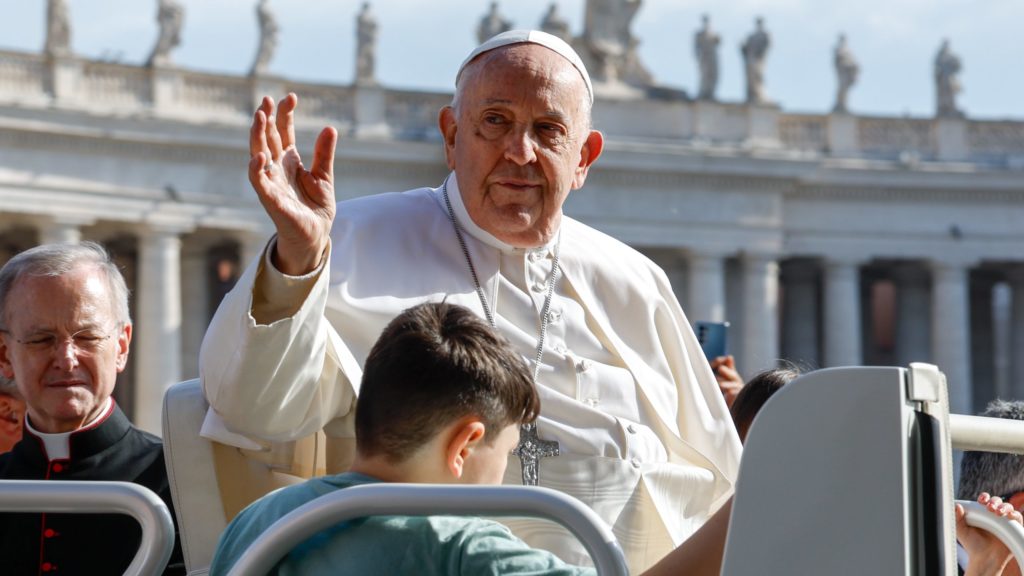While it is easy for people to love what is good and beautiful or to be generous and heroic for an ideal, Pope Francis said Christian love embraces what is not lovable, it offers forgiveness and blesses one's enemies.
This "greater love," which comes from God, "drives us where humanly we would not go: It is the love for the poor, for those who are not lovable, for those who do not care for us and are not grateful," he said at his weekly general audience in St. Peter's Square May 15.
"It is love for what no one would love, even for one's enemy," he said in his main catechesis.
This "great selfless love" includes love for "the poor, the sick and the helpless, such as unborn children," he said in brief remarks to visitors from Poland, who had brought a bell, known as "The Voice of the Unborn," which will be taken to Kazakhstan. He also greeted representatives of the Yes to Life Foundation, which started the initiative.
The bell serves as a reminder of "the need to protect human life from conception to natural death," the pope said.
In his main audience talk, the pope continued his series about vices and virtues by reflecting on the "theological" or New Testament virtue of charity or love. Of the three -- faith, hope and love -- "the greatest of these is love," according to St. Paul the Apostle.
Many people consider themselves to be good people who love their family and friends, when in reality they may know very little about the love of God, he said.
"Christians are capable of all the forms of love in the world: they too fall in love, more or less as it happens to everyone. They too experience the benevolence that is felt in friendship. They too feel love for their country and the universal love for all humanity," the pope said.
"But there is a greater love, a love which comes from God and is directed toward God, which enables us to love God, to become his friends, and enables us to love our neighbor as God loves him or her, with the desire to share the friendship with God," he said.
Love is charity, he said. And "we immediately realize that it is a difficult, indeed impossible love to practice if one does not live in God."
"Our human nature makes us love spontaneously what is good and beautiful. In the name of an ideal or a great affection we can even be generous and perform heroic acts. But the love of God goes beyond these criteria," he said.
"So much love is needed to forgive. Christian love blesses those who curse while we are used to responding to insults and curses with another insult and curse," he said.
"Love is the 'narrow gate' through which we will pass in order to enter the kingdom of God," he said. "We will not be judged on generic love, but precisely on charity, on the love we concretely had."

